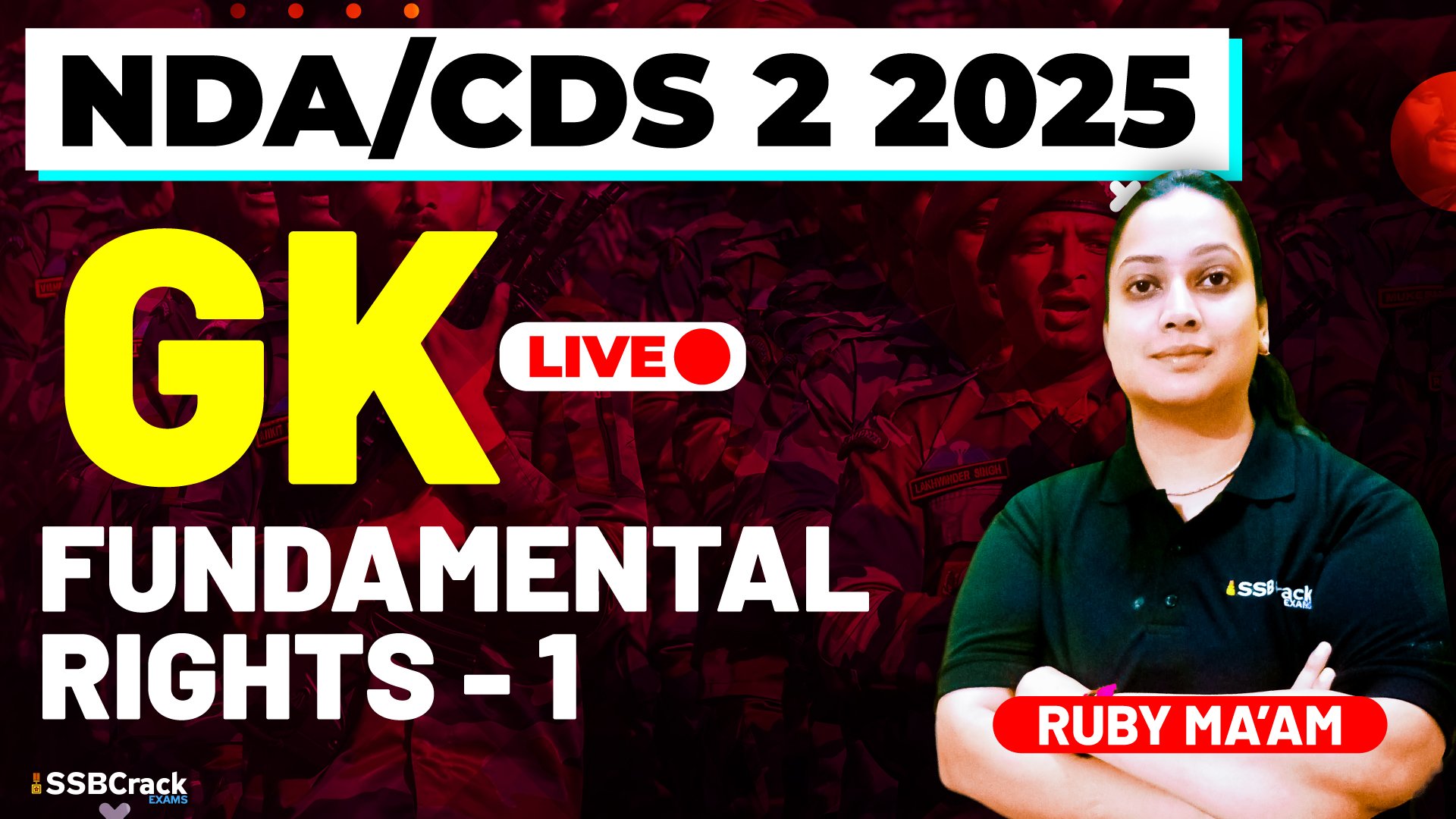For aspirants preparing for the NDA (National Defence Academy) and CDS (Combined Defence Services) examinations, understanding the Fundamental Rights enshrined in the Indian Constitution is not just about clearing a section of the written test — it is about developing the values essential to serve the nation with integrity, awareness, and responsibility.
What are Fundamental Rights?
Fundamental Rights are a set of rights guaranteed by the Constitution of India to all citizens. They are enshrined in Part III (Articles 12 to 35) and act as the foundation of Indian democracy. These rights ensure individual freedom and protect citizens from any arbitrary actions of the state.
The six main Fundamental Rights are:
- Right to Equality (Articles 14–18)
- Right to Freedom (Articles 19–22)
- Right against Exploitation (Articles 23–24)
- Right to Freedom of Religion (Articles 25–28)
- Cultural and Educational Rights (Articles 29–30)
- Right to Constitutional Remedies (Article 32)
Why Are Fundamental Rights Important in NDA/CDS Exams?
- Crucial for General Studies & Current Affairs
Questions related to the Constitution, especially Fundamental Rights, frequently appear in General Knowledge and Polity sections of the exams. Understanding the scope, significance, and limitations of these rights helps candidates answer MCQs accurately. - Understanding the Spirit of the Constitution
The Armed Forces are protectors of the Constitution. As future officers, candidates must appreciate the rights they are sworn to uphold and protect. Knowing the rights of citizens promotes constitutional morality, which is vital in a diverse and democratic nation like India. - Important for the SSB Interview
In the Service Selection Board (SSB) interviews, candidates are evaluated on personality, awareness, and analytical ability. Having a strong grasp of constitutional values like equality, freedom, and justice helps in group discussions, interviews, and situation reaction tests. - Essential for Leadership and Ethics
Officers must lead by example. Awareness of fundamental rights guides officers in making just decisions, respecting diversity, and treating subordinates and civilians with dignity — crucial qualities for ethical leadership.
Example: Application in Real Life and Military Service
Suppose a commanding officer is posted in a sensitive region. Decisions must be balanced — ensuring national security while respecting the rights of local citizens. In such cases, knowledge of Article 21 (Right to Life and Personal Liberty) or Article 19 (Freedom of Speech and Movement) becomes essential.
Similarly, knowing Article 32, the right to constitutional remedies, reinforces the understanding that every citizen has the power to approach the judiciary if their rights are violated.
Final Words
For NDA and CDS aspirants, Fundamental Rights are not just a topic to study — they are ideals to live by. They embody the principles of justice, liberty, and equality that every defence personnel is expected to uphold. A deep understanding of these rights will not only help in the exam but also shape you into a responsible and ethical officer of the Indian Armed Forces.







